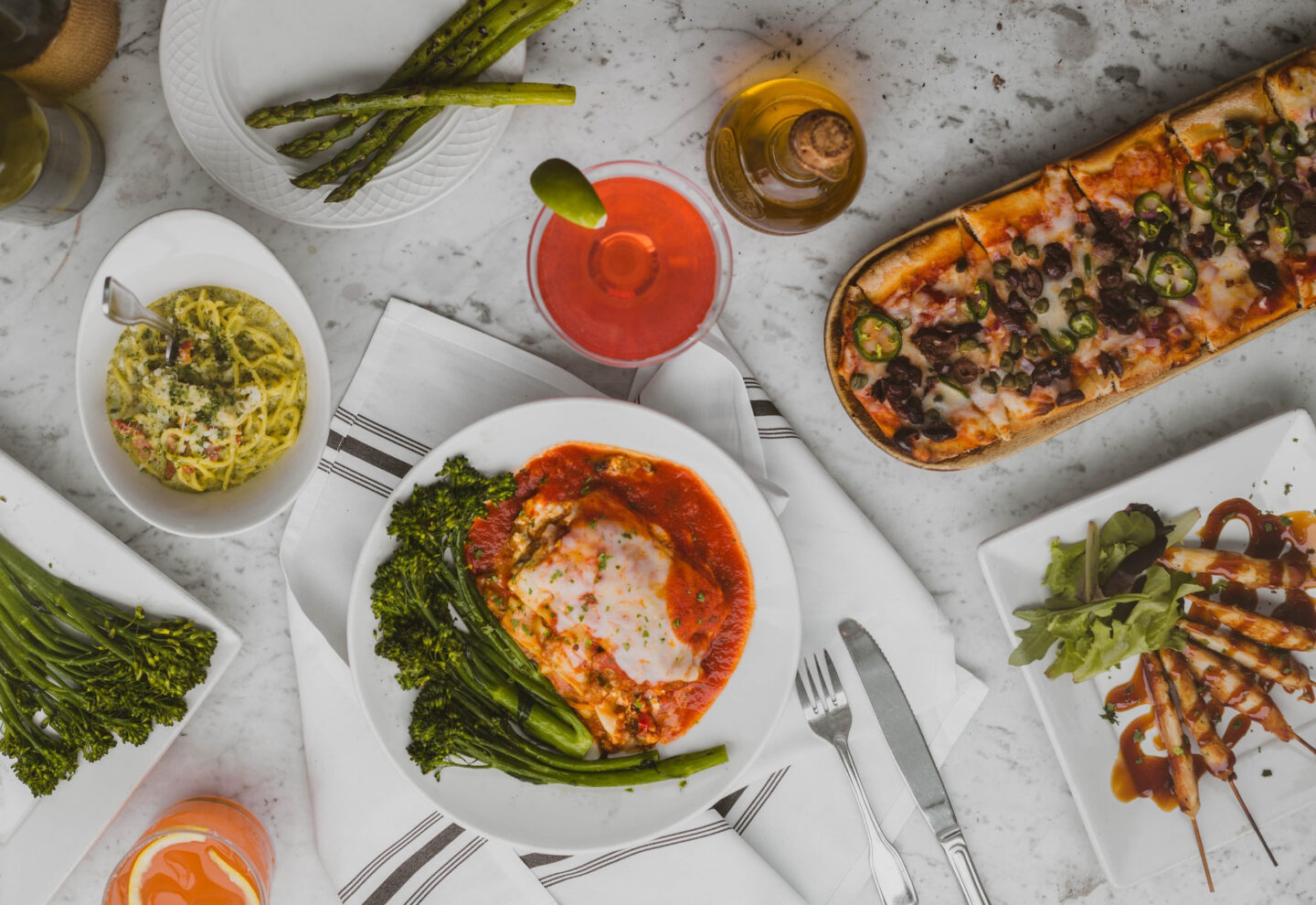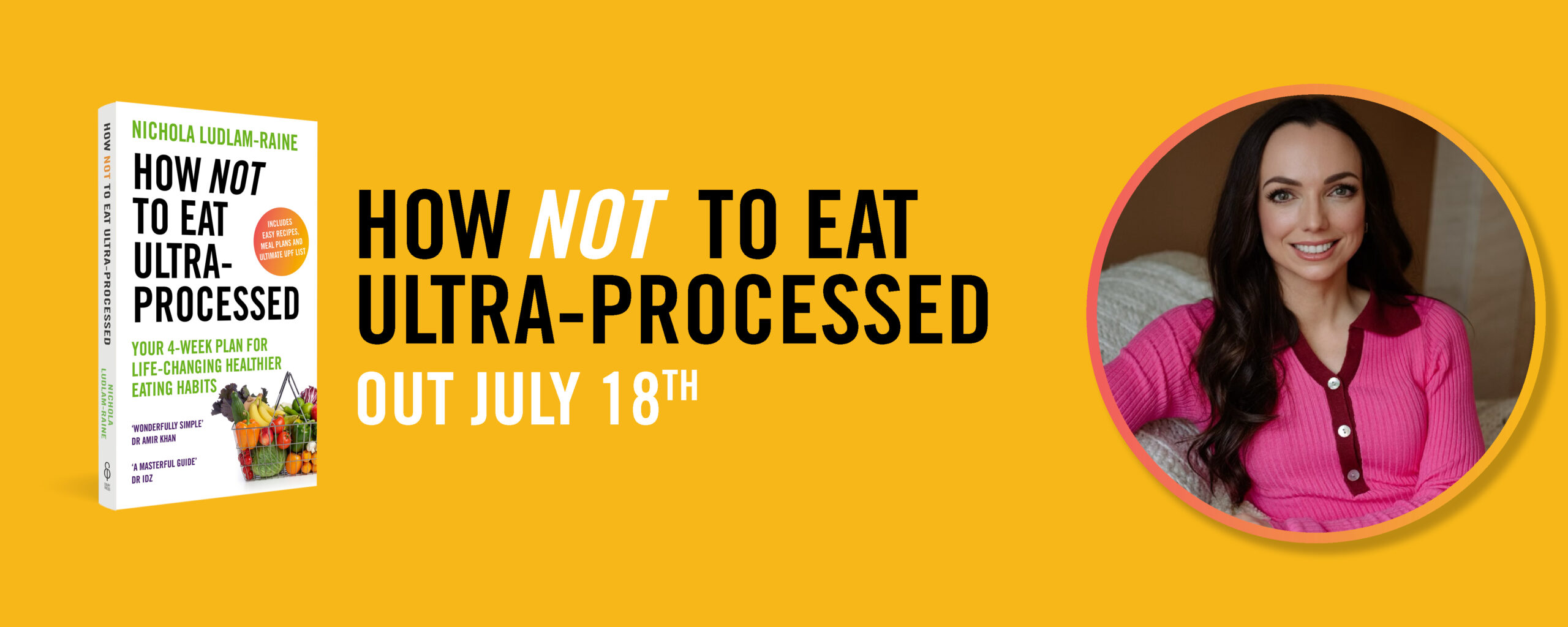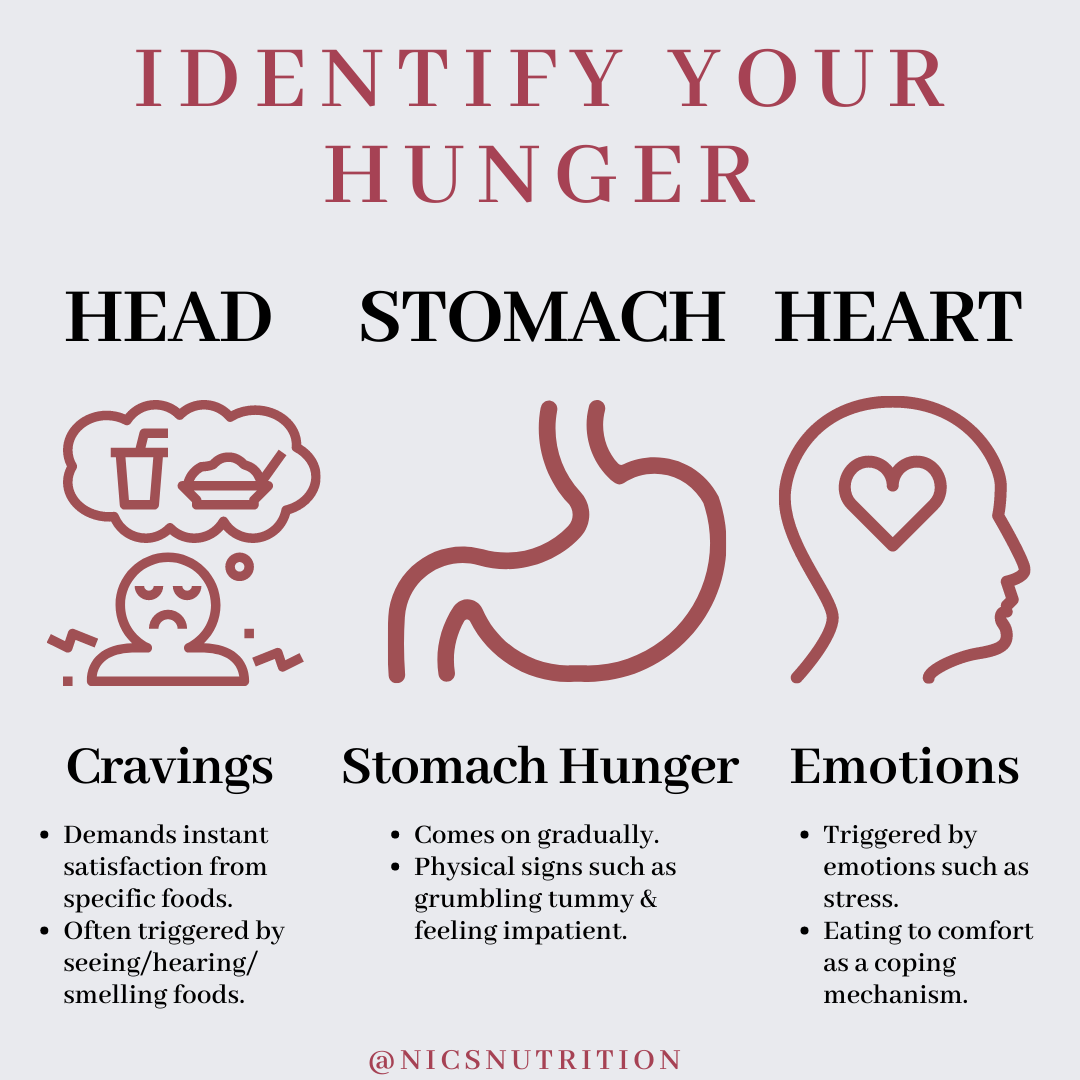
Hunger… we all experience it! However, it can be difficult to differentiate between the types of hunger we experience.
This is something I often discuss in my dietetic clinics, and it can take time to understand your own triggers for eating aside from physiological needs. I really hope you find this post useful if this is something you find challenging!

First of all, what is head, heart and stomach hunger you may be wondering?
𝐇𝐄𝐀𝐃 𝐇𝐔𝐍𝐆𝐄𝐑 🧠
These can be described as spontaneous food cravings, which are often triggered by eye hunger – i.e. when we’re scrolling through social media looking through drool-worthy food pics, or we see an advert for a particular food/restaurant whilst out and about. Head hunger can arise suddenly & demands to be satisfied instantly, although you may not feel completely satiated or satisfied after. You may also find that you often develop a craving for a specific food.
Of course it’s great to try new foods, variety is the spice of life! However, it can be costly for our wallets as well as our health (depending on the food!) if we always honour head hunger.
𝐒𝐓𝐎𝐌𝐀𝐂𝐇 𝐇𝐔𝐍𝐆𝐄𝐑 😖
With stomach hunger, we may experience more physical feelings of hunger that come from the stomach which include a rumbling tummy, a feeling of being ‘hangry’, impatient or even fatigued/lightheaded if you’ve not eaten for a number of hours (which of course isn’t recommended!). In comparison to ‘head hunger’ stomach hunger comes on gradually and builds until we eat again. We need food for both energy and nutrients, so it’s important to satisfy this hunger and not put it off until it’s too late.
If we’re ravenous when it comes to eating again, it can be easy to eat too quickly, potentially causing us to overeat until we’re at the other end of the hunger scale, feeling uncomfortably or painfully full.
𝐇𝐄𝐀𝐑𝐓 𝐇𝐔𝐍𝐆𝐄𝐑 ❤️
Heart hunger can be often caused by emotions (negative or positive!) e.g. eating for celebration, commiseration, or to gain that feeling of instant comfort or satisfaction that we may feel we need at the time. Using food as a reward or pick-me-up from time to time isn’t necessarily a bad thing, however when it becomes your primary coping mechanism you can get into an unhealthy cycle where the real feeling/issue is not addressed.
So, we know how to recognise our hunger, but how can we manage it?
HEAD HUNGER – LOOK TO YOUR ENVIRONMENT
- Remove unwanted ads from your social media or unfollow pages that can trigger your cravings and need for food.
- Place more fruit/veg in your eyesight (fruit bowls!) and make the healthy choice, the easy choice! For example, pre- portion healthy snacks such as nuts, dried fruit and a little dark chocolate (!)
- Prepare healthy snacks & meals ahead of time to avoid getting distracted by your thoughts.
HEART HUNGER – PRACTICE MINDFULNESS
- Take time to pause before and during eating, appreciating the taste & texture of the food.
- Try to eat without distractions, such as the television or your phone, and slow down – keeping a check of your emotions as well as hunger & fullness levels.
- Explore new ways to cope with emotions e.g. walking outside, self-care, calling a friend, yoga or meditation. Try to make a list of these so you can have them handy to look at (e.g. a note in your phone) if you ever need to.
STOMACH HUNGER – STRUCTURE & REGULAR MEALS
- Don’t skip meals! Aim for 3 regular meals a day and snacks in between if needed.
- Balanced plates with protein & fibre to keep satiated and fuller for longer.
- Eat until satisfied & comfortably full.
- Stay adequately hydrated throughout the day, we should be aiming for 6-8 glasses of fluids a day, at least.
It’s important to note that everyone is unique and there is no one size fits all when it comes to finding a solution that works for you. Be patient, trial different methods and techniques, and if you are still really struggling to manage a particular kind of hunger, whether that is head, stomach or heart hunger, then do speak to a registered dietitian or nutritionist for further support.
If you have any questions, do let me know over on @nicsnutrition on Instagram!

